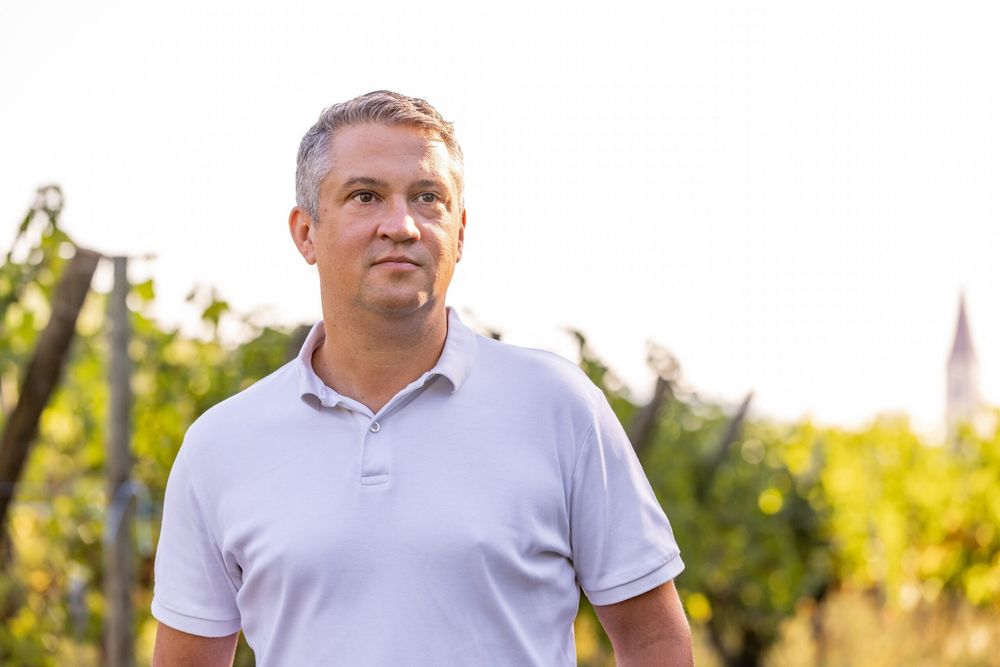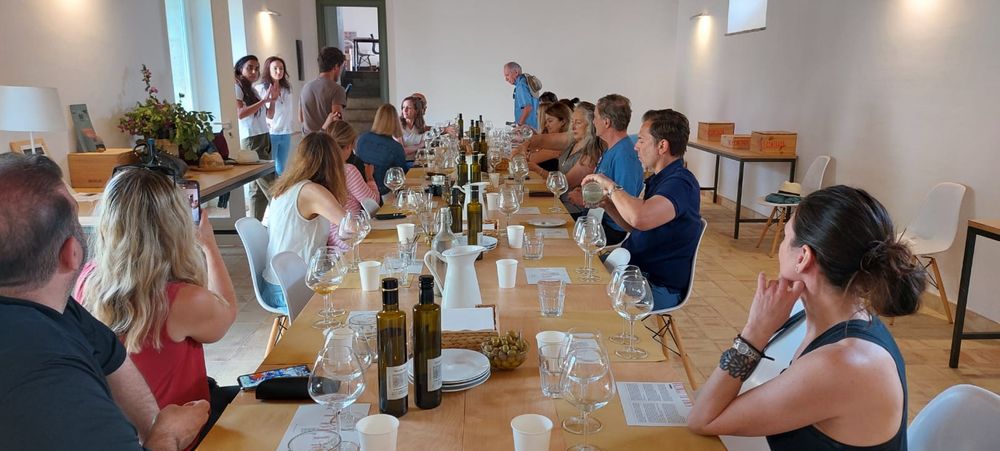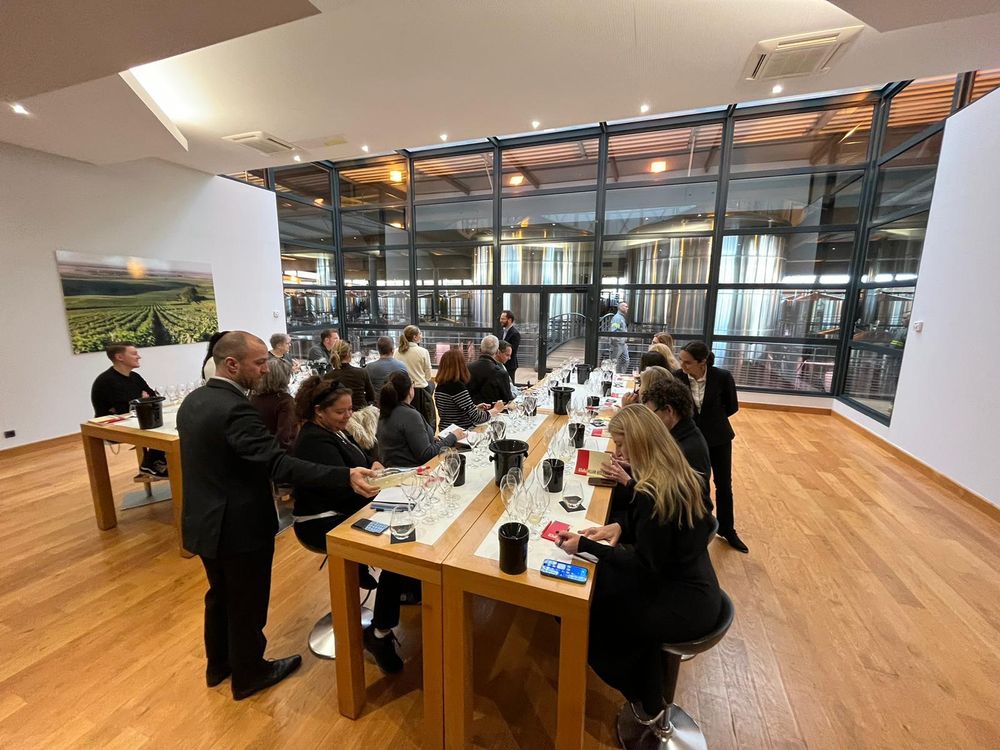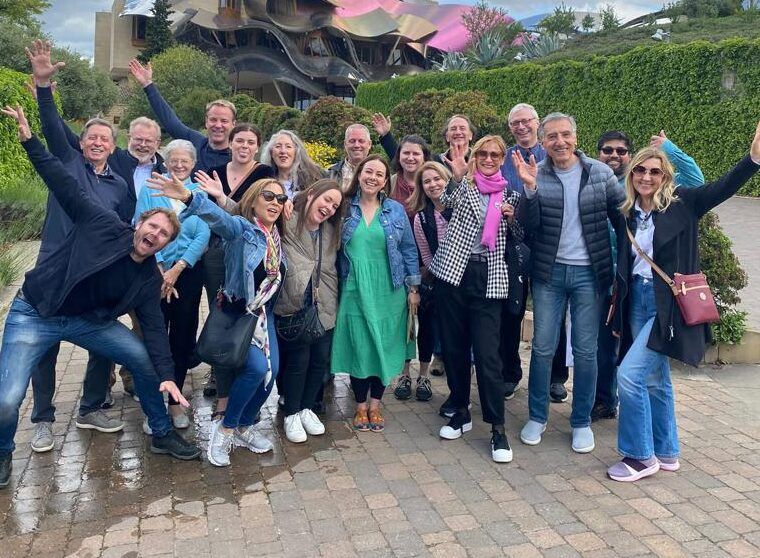“Students today are looking for new experiences, not just prestige labels that reflect a perceived social status,” says Julien Camus, Wine Scholar Guild

I like to speak of the ‘wine network’ as opposed to the ‘wine industry’,” Julien Camus, founder of Wine Scholar Guild
Frenchman Julien Camus founded what would become Wine Scholar Guild in Washington, D.C. back in 2005 at the age of only 23 years old. Camus debuted his career in wine while he worked as a trade attaché for wines and spirits at the French Embassy. He soon recognised the need for French wine education to spur consumer demand and interest in his country’s wines – and so he founded the French Wine Society, an organisation dedicated to the promotion of the wines of France through education. Julien immediately received the support of 25 key French wine importers in the United States.
In 2008, Camus created the French Wine Scholar certification. Soon afterwards, he recognised the need to create additional awareness of Italian wines and created the Italian Wine Scholar certification, followed by the Spanish Wine Scholar certification. Eventually the French Wine Society was reborn as Wine Scholar Guild with a strategic focus on these three specific countries. Since leaving the embassy, Camus has devoted his energy to developing the Wine Scholar Guild and its network of programme providers around the globe.
Camus holds a master’s degree in business administration with a major in international marketing from the Strasbourg Management School. In 2019, Camus was one of the “Future 50” award winners, an award created by WSET and IWSC to acknowledge professionals under 40 who have made a significant contribution to the industry.
In less than 20 years, Wine Scholar Guild (WSG) has established itself as the leading provider of specialised certification programmess on the wines of France, Italy, and Spain with a school network of over 130 schools, spanning 30 countries on five continents. WSG is recognised as the pioneer in online wine education featuring a distance-learning platform which includes hundreds of educational webinars, interactive e-learning modules, online flashcards, pronunciation exercises, and learning games. WSG students are part of an inter-connected, supportive international alumni community of more than 10,000 graduates.
Camus lives in the heart of the wine region of Alsace with his wife and partner Céline and their teenage daughter Zoe.

Wine Scholar Guild offers online, in person and study abroad programmes
Christian Holthausen: When and how was Wine Scholar Guild founded?
Julien Camus: Just shy of 20 years ago, I was a young French guy who was sent to be a trade attaché at the French Embassy in Washington, DC with the mission of promoting French wines and spirits in the United States. Shortly after I arrived, the U.S. invaded Iraq and the French government was formally opposed to that decision. Many Americans accused France of betrayal, igniting a great deal of anti- French sentiment in the United States. French fries were renamed “Freedom fries” in many cafeterias while restaurateurs and wine shop owners were refusing to work with French wine producers.
I was only 23 years old at the time – but I realised that I was going to have to find a very different way to educate people about wine.
I started off slowly, organising small events focused on French wine and gastronomy in various U.S. cities. The idea was to be able to facilitate exchanges with French producers, to let them explain the concept of terroir in their own voices. In 2005, the events were really becoming successful, and French Wine Society was born. By 2017, French Wine Society had organized over 350 events in the U.S., in several major cities including Washington, D.C., Chicago, San Francisco, New York, Miami, and Atlanta.
At the same time, I realised that we could have a greater, longer-lasting impact, and that the public was increasingly interested in wine education.
In 2008, Lisa M. Airey, CWE joined French Wine Society as education director after several years in the same role at the Society of Wine Educators. She helped me to develop the French Wine Scholar programme. Shortly thereafter, we began working with a handful of independent wine schools across the US. It didn’t take long for schools to see the unique value of our specialised wine education programs, which saw our expansion into Canada and Hong Kong shortly thereafter.
At the same time, we realised that online wine education represented a huge opportunity, and we were really one of the very first in the wine space to invest in e-learning.
In 2015, French Wine Society was rebranded as Wine Scholar Guild as we decided to respond positively to the need, expressed by our partner schools and students, for in-depth specialised programmes on the wines of Italy and Spain. In 2016, the Italian Wine Scholar programme was born, followed in 2018 by the Spanish Wine Scholar programme. Andrew Jefford joined us as academic advisor in 2019.
What is different about Wine Scholar Guild?
Most wine education organisations give you a general overview, but you aren’t allowed to go in depth into one specific country or region. Understanding what a Sauvignon Blanc from New Zealand or a Malbec from Cahors or an Assyrtiko from Greece is “supposed to taste like” is important – but it’s too broad and caricatural. At WSG, we want to focus on personal growth and empowerment through razor-sharp precision.
Most students come to us with a general wine foundation. We don’t focus on breadth but on depth. We want to take them to the next level and give them a true working knowledge of the country or region. We want to go beyond the general overview and make them true scholars, specialised in one area or a handful of areas of expertise.
Our Essentials, Scholar and Masters programmes are regarded as some of the most highly qualified wine certifications in the world.
In addition, WSG is independent. It accepts no advertising or promotional funding from government bodies or corporate sponsors for the creation of its proprietary programmes. This allows WSG to take a stance on key issues and controversial topics, giving you the realities of the world of wine, devoid of any marketing jargon.

“Wine lexicon needs to change.” Champagne Masters immersion
What is special about your vision for WSG?
WSG exists for the wine-obsessed, whether professionals or engaged enthusiasts.
I have always believed in authentic wines of place. These are wines that speak to the richness of a region, the singularity of a vintage and the intention of the people who craft them.
I like to speak of the ‘wine network’ as opposed to the ‘wine industry’ since wine needs to be revered as an agricultural and cultural product, not an industrial product. The kind of wines we champion come with values and practices that are sustainable and reward both the consumer and the producer.
I really don’t like marketing jargon. I believe in taking stances on important issues. I believe in transparency. I believe in craftsmanship and stewardship. I believe in plurality, regarding people, wines, grape varieties, and practices. Diversity should be defended and celebrated.
Most importantly, I believe in empowerment. It’s not about teaching basic ideas about acidity and body and tannins. It’s about nuances and moving beyond preconceived notions. I want our students to pay attention to their own intuition, to appreciate the different nuances of a wine, to focus on the sensuality and pleasure of this exceptional product.
The wine lexicon needs to change – and I am proud that WSG is encouraging a lot of very productive conversations to bring that to fruition.
How has wine education changed in the last 20 years?
Compared to 20 years ago, today we find a large cohort of students who have acquired a firm foundation of general wine knowledge. These students are now coming to WSG seeking to specialise and to dig deeper. Students are seeking a working knowledge that they can put into place in the workplace or in their travels. Students are not just looking for random facts; they want to be empowered to develop their critical thinking skills and be able to apply their new knowledge.
Students today are more discerning and demanding. They are expecting active learning methods, rather than just a textbook. They are also expecting to be provided with resources that speak to different learning styles.
Today, educating oneself about wine is less about trophy wines or the classic prestigious regions. Students today are looking for new experiences, not just prestige labels that reflect a perceived social status. They want to create more intimate connections with individual regions and producers. They are looking for producers who care about the environment, who are acting on climate change, and who are committed to diversity and inclusion at all levels of their business.
Does WSG also organise intensive study trips?
WSG offers a series of study abroad experiences to some of the world’s most important regions each year, including Champagne, Bordeaux, Bourgogne, Rhône, Piedmont, Sicily, Campania, Veneto, Trentino & Alto Adige, and Rioja, among others.
WSG’s tour instructors deliver the most exciting and intellectually stimulating wine study immersion trips available, opening doors to celebrated estates that are often closed to the public.
You have just launched a new WSG website featuring a complete redesign of the online space. Why was this important to you?
Our new website boasts a greatly improved layout and design, allowing new students and alumni alike to easily find their next wine challenge, whether that’s an online certification, in-person classroom study or a study abroad learning experience in Europe.
Our online classroom experience has also been overhauled, prioritising accessibility and navigability with a fresh look and feel, designed to further enhance the learning experience and for students to track their progress more accurately.
Who are your instructors and contributors?
WSG is universally acclaimed for the quality and breadth of its instructors and contributors, a community of wine professionals and educators that are recognised as the most respected names in the industry. Most importantly, this team accompanies each student along the journey.
In addition to Lisa Airey, Andrew Jefford, Andrea Eby and Rick Fisher at the core of the WSG Education team, we are very honoured to work with amazing people such as Pascaline Lepeltier MS, Robin Kick MW, Tim Magnus, Françoise Vannier, Donald P. Kinnan, Jasper Morris MW, Jeremy Seysses, Frédéric Barnier, Essi Avellan MW, Peter Liem, Steve Charters MW, Charles Curtis MW, Mick Blampied-Lane, Gaylord Legras, Yves Tesson, Jean-Baptiste Lecaillon, Cédric Moussé, Mary Gorman-McAdams MW, Jane Anson, Fiona Morrison MW, Wendy Narby, Matt Walls, Sharon McClean, Andrea Eby, Kerin O’Keefe, Claudia Cesarino, Mary Kirk, Jane Hunt MW, Rick Fisher, Lucas Payá, Jonas Tofterup MW, Danny Alder, Brenna Quigley, Robert White, Pedro Parra, Prue Henschke, Olivier Humbrecht MW, Erni Loosen, Dirk Niepoort, John Sazabo MS, Yiannis Paraskevopoulos, Cornelius Dönnhoff, Stéphane Derenoncourt, Steve Smith MW, Louis Barruol, Laura Farris, Isabelle Masneuf-Pomarede, Guilherme Martins, Jean-Christophe Barbe, Georgia Lytra, Nova Cadamatre MW, Kees Van Leeuwen, Marc Greven, Elisa Marguerit, Greg Gambetta, José Vouillamoz, Evan Goldstein MS, David Glancy MS, Virginia Philip MS, George Miliotes MS, and Chris Gaither MS.






























